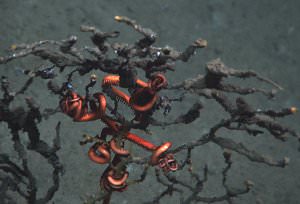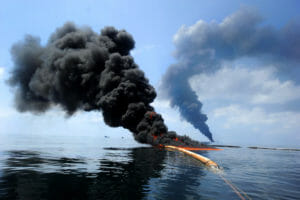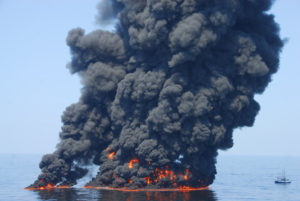R.I.P. Gulf Coral Reefs
A team of scientists “on a research cruise” (what?) have discovered severe damage to coral reefs near the location of the Deepwater Horizon's blown-out wellhead. Coral, which is a barometer of the health of an ocean's ecosystem, was found to be “sloughing off tissues and producing mucus.” Gross.
A team of scientists “on a research cruise” (what?) have discovered severe damage to coral reefs near the location of the Deepwater Horizon’s blown-out wellhead. Coral, which is a barometer of the health of an ocean’s ecosystem, was found to be “sloughing off tissues and producing mucus.” Gross. –JCL
Your support matters…Los Angeles Times:
Scientists on a research cruise this week found a community of dead and dying deep-sea corals not far from the site of BP’s blown-out wellhead.
“Within minutes of our arrival … it was evident to the biologists on board that this site was unlike any others that we have seen over the course of hundreds of hours of studying the deep corals in the Gulf of Mexico over the last decade,” Penn State University biology professor Charles Fisher and the cruise’s chief scientist said in a news release.
A colony of hard coral at a depth of more than 4,000 feet was sloughing off tissue and producing mucus, while a nearby community of soft corals had extensive bare areas. A type of starfish associated with the coral was also in bad shape.
Independent journalism is under threat and overshadowed by heavily funded mainstream media.
You can help level the playing field. Become a member.
Your tax-deductible contribution keeps us digging beneath the headlines to give you thought-provoking, investigative reporting and analysis that unearths what's really happening- without compromise.
Give today to support our courageous, independent journalists.





You need to be a supporter to comment.
There are currently no responses to this article.
Be the first to respond.